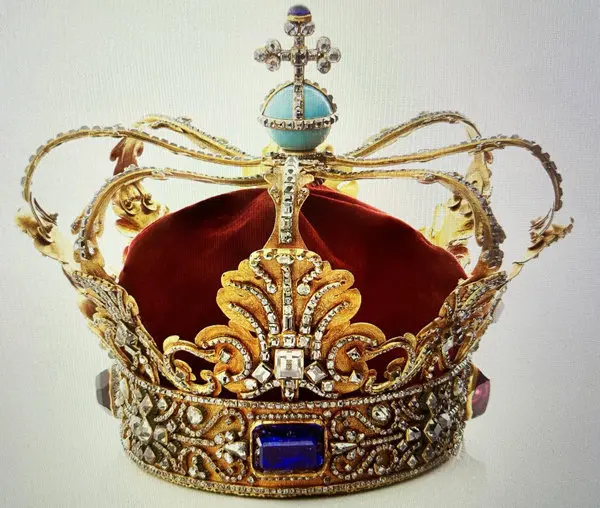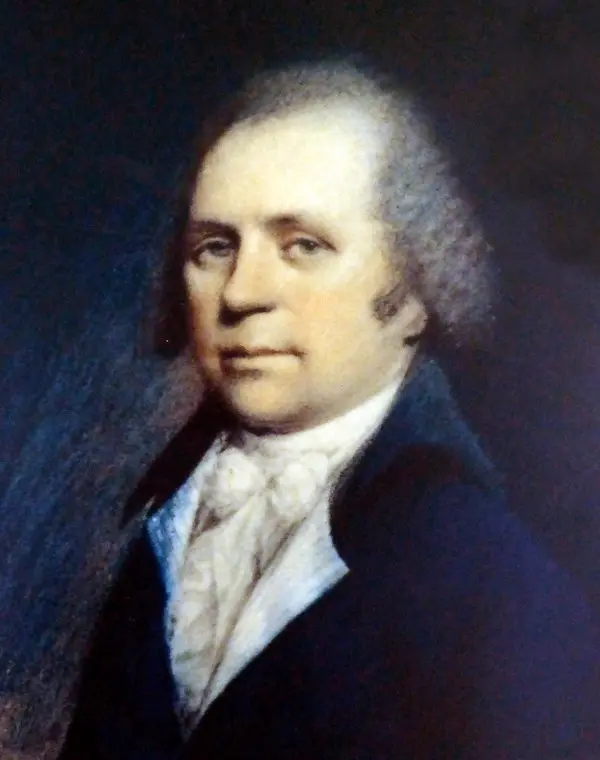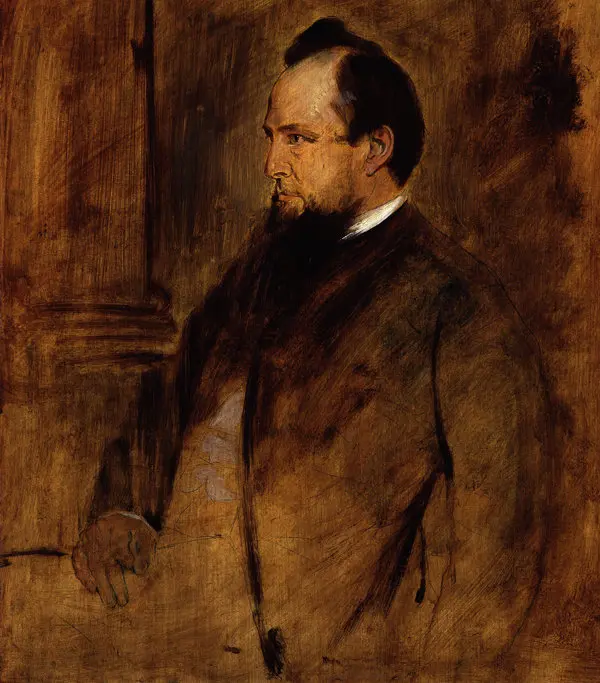The root of the problem: Power begets power Speculations by Stefan Stenudd
It doesn’t have to be based on fear. Dependence will do much the same, but that’s just another kind of fear – the one of losing what power can rip away. Power can also grow from others wanting something that the powerful can offer. Or a combination of the above. They all lead to increased power. This is difficult to avoid, since it lies in the very nature of power to increase. Wherever power appears, it swells as if by itself and at no point is it enough.
Power begets powerJames McHenry, who was one of the founding fathers and signatories of the US Constitution, explained it by the expression “power begets power.” This was in a text published in 1789.[1] I have not found any earlier use of the expression, but there could very well be one. McHenry wrote about who could be trusted to represent the people. This is what he had to say about the power it entails:
Power corruptsWhat McHenry describes is the tendency of power not only to grow, but also to corrupt the mind of the one who has it. This was again pointed out a hundred years later in England, by Lord Acton: “Power tends to corrupt and absolute power corrupts absolutely.”[2]He said so in an 1887 letter to the clergyman Mandell Creighton, with whom he had a correspondence on such matters. His words are harsh:
Evidently, James McHenry and Lord Acton are in agreement. The corruption of the mind of those with power is what makes them tend to increase it. That’s easy to do, precisely because of their power. It is also why they should not have it.
Power is privilegeI’m not sure, though, that power in itself corrupts, at least not as an explanation to its growth in the hands of those who have it. Although power can bring satisfaction, it’s too abstract to twist minds and make them lose their moral stature if they have one to begin with, and if they don’t they already are corrupt – with or without power.It’s what power can bring that gets them and makes them hold on to it frantically as well as strive to increase it. What they have they can lose, so they tighten their grip on it. Before they had it there was not much to guard, but the more they get of it the greater their fear of losing it becomes. It never stops. They don’t get the least bit bored of what their power brings them. That’s why so many of them hang on to it as long as they can, even when they get so old that there’s not much about it that they’re able to enjoy anymore. Look at the US Congress – the median age in the House is 58 years, and 65 in the Senate. That’s the median. In the Senate, 30 of the 100 are in their 70s, and 5 over 80. Only two of them are below 40. The House is slightly younger, but there too the biggest group is those in their 60s. USA is turning into a gerontocracy, a rule by elders. They’ve had many years to establish and expand their power. They won’t let go. That’s how we know they have privileged lives. Age is not necessarily a problem, but privilege is since keeping it becomes the main objective. The power is used to protect that privilege. Nothing else matters more and no action is unthinkable in order to succeed.
Limited powerOf course there are exceptions to the rule. Some people – and I think they are not few – don’t get seduced by power. Unfortunately, that also means they are not eager to seek it. So, not many of them get it, which leaves lots of room for those who want it. I would be very hesitant to trust them. The more they want it, the less they should be trusted.It ought to be a golden rule: Power should only be given to those who are willing to relinquish it. The problem is that it’s hard to know in advance who will and who will not do that. And by time it gets increasingly difficult to get rid of those who don’t. Society needs safeguards against misuse, or mayhem is around the corner. In the US, presidents are only allowed two terms, which is eight years. That’s enough to cause a lot of damage, but the limited time span also limits the power accessible to the president. It has an expiration date, therefore also a foreseeable time beyond it, and everybody knows that. Not so with the congress, unfortunately, nor for the Supreme Court. So, according to both James McHenry and Lord Acton they are bigger problems. Their powers are much more difficult to safeguard against, and they can be less cautious than a president needs to be. Thereby gerontocracy.
Power must yieldPower is dangerous to everyone involved, also those wielding it. They are targets for those who seek the same, and since that is power the methods will be ruthless. Power is the opposite of respect. Those with power always have to watch their back and tread carefully, more so the mightier they are. It’s a life of constant anxiety, even making some of them paranoid. That’s why the mighty tend to get fiercer by time.Back when I was a boy, my mother came up with a theory that I found brilliant. It was a triangle of priorities: People seek security, freedom, or power. They might want it all, but that’s not possible. One excludes the other two. If you have security you are sure to lack freedom and power, with freedom you can’t have security or power, and with power you have neither security nor freedom. So true.
They must yield their power. If they can’t, others should strip them of it. There is a risk, though, that those who succeed just take over the power. It’s like the children’s game King of the hill. The one who pushes a kid down from the hill remains on top of it. The only way to avoid this is if no one climbs to the top – or they all do. Both these solutions point to democracy. No single one has the power because they all do. When power is shared equally it can no longer be corrupt. Power to the people. The US Declaration of Independence states it threefold – the human rights, the duty of government to respect those rights, and the right of the people to revolt when that is not the case:
Unfortunately, the Constitution written in 1787 hands most of these powers over to Congress: “All legislative Powers herein granted shall be vested in a Congress of the United States, which shall consist of a Senate and House of Representatives.” The tenth Amendment confirms it: “The powers not delegated to the United States by the Constitution, nor prohibited by it to the States, are reserved to the States respectively, or to the people.” So, the people can only have the power that the government allows them. Quite a turnabout in just a decade. But the British rule had been removed and so, Congress was the King of the hill. It still is. The presidential election, taking place as I write this, is kind of a distraction. The political power in the USA is not in the hands of the president, but in those of the Congress. Still, that election is shadowed by the spectacle of the presidential race. A last quote is applicable here, from the Roman poet Juvenal c. 100 AD: “Bread and circuses.”
Stefan Stenudd November 5, 2024
[1] The American Museum; or Repository of Ancient and Modern Fugitive Pieces &c. Prose and Poetical, 1789-01: Volume 5 Issue 1, p. 57. [2] First Baron John Emerich Edward Dalberg-Acton, Essays on Freedom and Power, Boston 1949.
James McHenry's complete textGeneral observations, intended to direct the judgment in forming a just opinion of the men who ought to be chosen to represent a free people; addressed to the citizens of Maryland: by James McHenry, esq.
2. Men embarked in the same speculations are too much disposed to combine together to get some of their party to be lawmakers. Yet it is possible for such men to prefer the general good to their own speculations; but such instances are uncommon. 3. Men heavy-laden with debt are disqualified for legislators. Should a dishonest path open, through which they can escape from their embarrassment, it is scarcely possible for them to decline taking it. No man should be suffered to sit as a judge in his own case. 4. Shun men who have always been found to direct their opposition even against the liberal thinkers of a different religious persuasion, when placed in competition with a person of their own church. These are enemies to equal liberty, and will sacrifice almost every thing to a religious prejudice; yet it is difficult to determine, whether the human mind is more under the influence of interest or bigotry. Interest is a Scylla; bigotry a Charybdis. Ye friends of mankind! ye lovers of civil and religious liberty! keep far away from your councils, bigots and interested men! 5. Never trust a cunning man to make laws for you, when you can get an honest man; the first does every thing by trick — the last every thing by truth. The one is always candid — the other always a hypocrite, and, when nothing else will do, a liar. 6. The possession of power begets power. Do not give power to a weak man, for he cannot use it to your advantage; nor to a bad man, for he will turn it to his own profit. It is only to be trusted in the hands of a good man, and even not long with him, lest it should corrupt his virtue. 7. A long possession of power necessarily weakens the love of liberty, and creates an indifference to the approbation of good men. Power, by increasing men’s influence, inclines them to rely more upon it, than upon virtue, for their re-election. 8. It is always dangerous to keep the offices of government filled with men linked together by the same ties of interest. Should this ever happen, and these men acquire influence to continue themselves in office, the liberties of the people will be swallowed up in their particular interest. To prevent this calamity, the bili of rights is continually reminding you, that "elections ought to be free and frequent," and that a rotation in the higher departments of government, is one of the best securities of permanent freedom. And yet how little pains is taken to prevent the same men from being elected, year after year, to the same offices! Re-elections into the assembly must finally render it a hereditary body. The Pennsylvanians have endeavoured to guard against this kind of corruption, by the 8th section of their frame of government, which ordains — "that no person shall be capable of being elected a member to serve in the house of representatives of the freemen of that commonwealth, more than four years in seven." This is a wise article; breaking up combinations, and staying the progress of aristocracy and self-interest.
More Speculations
About CookiesMy Other WebsitesCREATION MYTHSMyths in general and myths of creation in particular.
TAOISMThe wisdom of Taoism and the Tao Te Ching, its ancient source.
LIFE ENERGYAn encyclopedia of life energy concepts around the world.
QI ENERGY EXERCISESQi (also spelled chi or ki) explained, with exercises to increase it.
I CHINGThe ancient Chinese system of divination and free online reading.
TAROTTarot card meanings in divination and a free online spread.
ASTROLOGYThe complete horoscope chart and how to read it.
MY AMAZON PAGE
MY YOUTUBE AIKIDO
MY YOUTUBE ART
MY FACEBOOK
MY INSTAGRAM
MY TWITTER
STENUDD PÅ SVENSKA
|
 Sunday Brunch with the World Maker
Sunday Brunch with the World Maker


